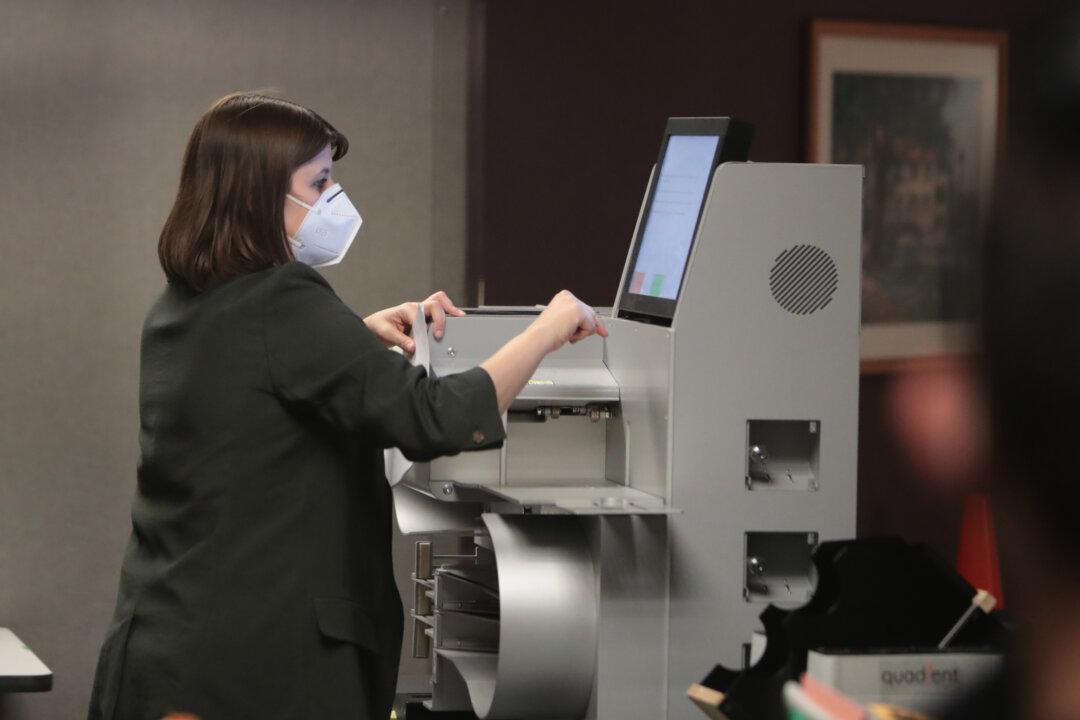Lawmakers, cybersecurity officials, and expert panelists warned the public years ago of the vulnerabilities of America’s election infrastructure, as well as threats of foreign and domestic interference in U.S. elections.
In December 2019, Sens. Elizabeth Warren (D-Mass.), Amy Klobuchar (D-Minn.), Ron Wyden (D-Ore.), and Rep. Mark Pocan (D-Wis.) raised concerns about the poor condition and vulnerabilities of voting machines and other election equipment, as well as a lack of transparency, in letters sent to three private equity firms: McCarthy Group, Staple Street Capital Group, and H.I.G. Capital.





